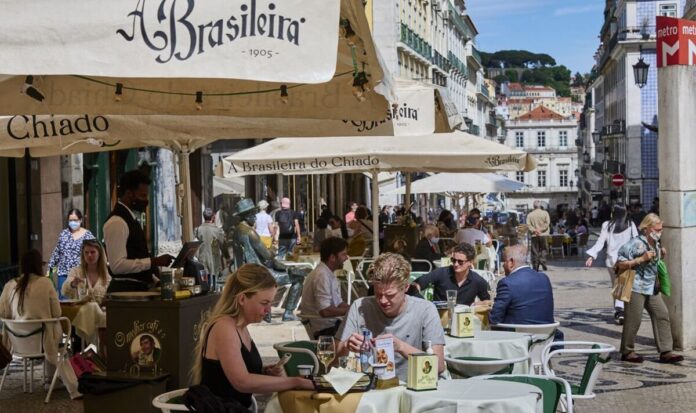Lisbon is famous for its bright yellow trams (Image: Getty ) An expert has warned ‘half of the buildings’ of a European capital city prone to earthquakes would not withstand a Morocco-like quake. Beautiful Lisbon, in Portugal, is a popular destination for British holidaymakers seeking a city break or a longer stay to enjoy the nearby stunning coastline. But the historical port city is no stranger to major seismic events, in 1755 a massive earthquake and tsunami killed an estimated 12,000 people. The disastrous quake followed others in 1321 and 1531. The scale of the earthquake meant it is sometimes considered the first modern disaster, after other countries began offering aid in much the same way as nations do today. King George II responded the crisis besetting Britain’s oldest ally by sending a ship laden with gold and silver and the equivalent of £44 million pounds was raised to help the Portuguese rebuild. An etching of the Lisbon earthquake disaster in 1755 (Image: Getty ) Today Lisbon has enjoyed relative geological calm, with the last big earthquake to hit Portugal in 1969 killing 13 people. Quakes that hit the country are usually generated from the Azores–Gibraltar Transform Fault line. But the wider region remains seismically active as the devastating 6.8 magnitude quake which struck Morocco on Friday September 8 has shown. More than 2,800 people are reported to have been killed. Speaking to Portuguese news outlet Diário de Notícias seismic expert Jose Paulo Costa said Lisbon was in danger from another quake. Mr Costa said he had thought about inventing an ‘earthquake-proof bed’ because of the amount of buildings in the city that could not withstand a quake. He said: “The day it happens we have to be prepared, if we’re not, it’s fatal. I’ve even thought about inventing an earthquake-proof bed, which would be a canopy bed, like the traditional ones, only made of steel. ‘If there’s an earthquake, you’re inside a bubble and for two thousand euros you won’t die. I’ve thought about doing this, because the number of buildings that are going to collapse in Lisbon is frightening. ‘Scary in the sense that half of the buildings in Lisbon will certainly not withstand an earthquake.’ A deadly earthquake killed more than 2,800 in Morocco this month (Image: Getty ) Mr Costa added that many people today don’t remember, or were not even born, when the last earthquake of any note hit in 1969. He added that like the buildings in Morocco, many of the buildings in Lisbon and elsewhere in Portugal ‘can’t withstand that kind of oscillation’ in the ground that happens when an earthquake occurs. Mr Costa said: ‘Basically, in Portugal there are buildings built before the 1980s, all of which are very vulnerable to earthquakes. ‘Buildings built after the 1980s, according to regulations, are earthquake-resistant, but they may not have been built according to best practice, because there is no supervision in this area. ‘But the vast majority of our houses in the south of the country, perhaps more than half, are earthquake-sensitive.’
Popular tourist hotspot at risk of collapse as it couldn’t ‘survive earthquake’
Sourceexpress.co.uk
RELATED ARTICLES


